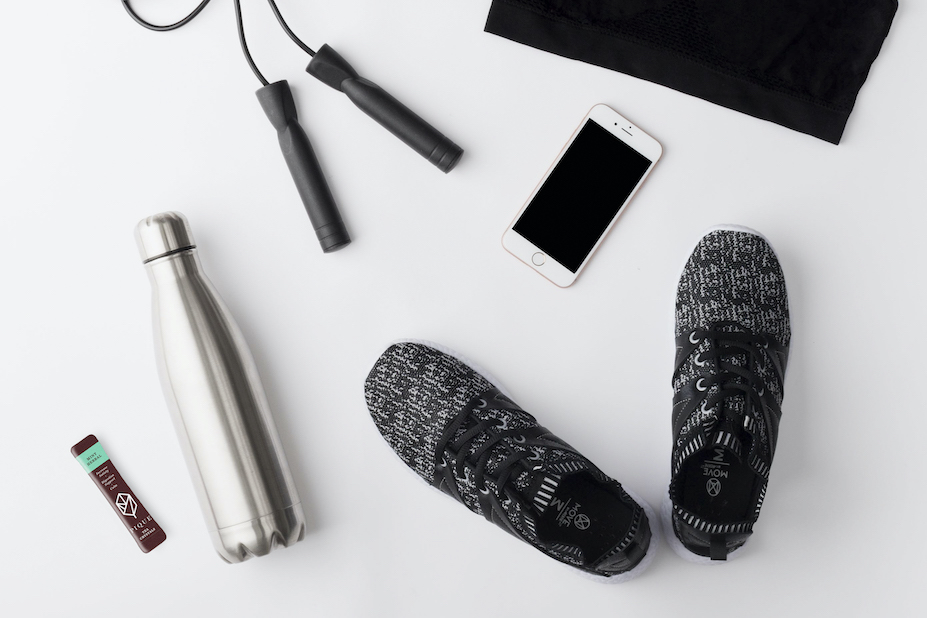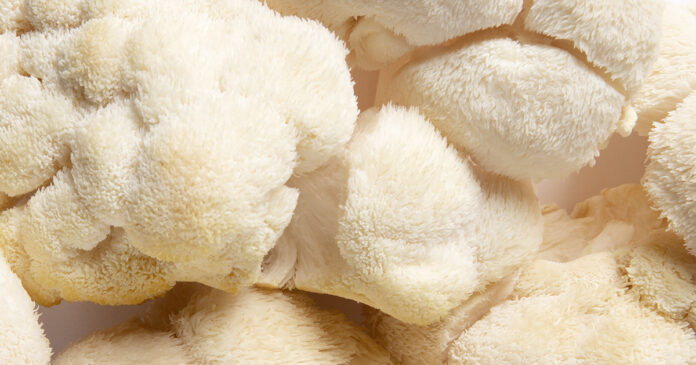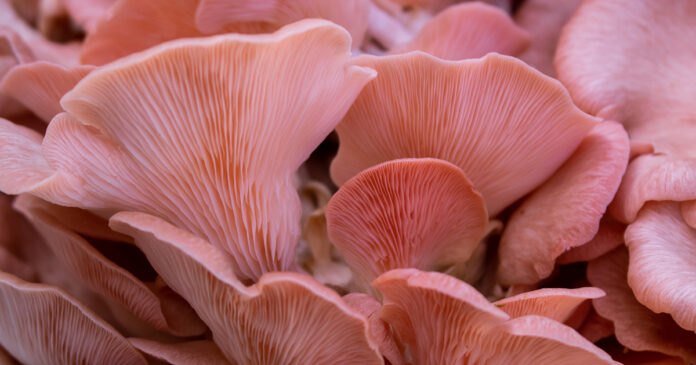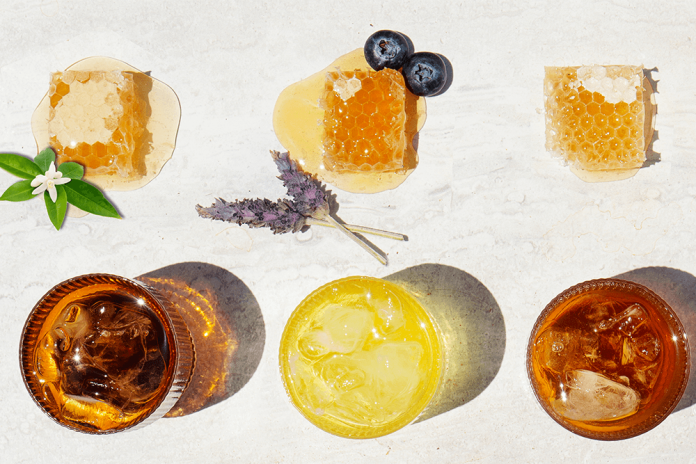In most of our minds, tea and wellness go hand-in-hand. The potential health benefits of tea are well-documented and have been valued for centuries.
But tea as a sports drink?
Is it possible that the ideal hydration to help you power through your workouts with more energy and better recovery is inside your teacup?
We’re digging into the science to see if it just might be worth swapping your energy drink with tea…
How Tea Can Support Your Workouts
Athletes have not generally been seen as a primary tea-drinking community. There’s no tea equivalent of Gatorade! Maybe there should be…?
Most of the energy drinks on the market are highly caffeinated, generally carbonated, and enhanced with sugar or other sweeteners, plus amino acids and herbal extracts.
Even the few products specifically marketed as “teas” for athletes are in fact mostly herbal, caffeine-free and thus missing the exact chemicals and enzymes that have been scientifically shown to offer health benefits.
Pure tea (plain, unboosted and the very same brew you drink at rest) is indeed endorsed by many studies and expert sports medicine and coaching professionals.
They see tea as a valuable element in enhancing five main areas of athletics: (1)
- Energization
- Hydration
- Endurance
- Concentration
- Recovery
Here are a few of the consensual assessments of tea benefits for the fit and sweaty, drawn from scientific studies and the voices of experience.
1. Energize quickly and safely
Tea is a synergistic combination of catechins (antioxidants) and caffeine. This combination has been shown to help boost metabolism and speed up the conversion of nutrients to the energy you need at the start of activity.
Catechins are the rich collection of compounds that are most associated with the health benefits of green tea. They have a fast, though short-lived, impact on fat oxidation (catechins) and fat melting (caffeine).
Think of it as a wake-up jolt to your body that encourages it to use your stored fat as a fast source of fuel.
The empirical data to support this finding is scattered but consistent. More importantly, the evidence for green tea’s effect is far higher than for the many supplements specifically marketed as fat burners, that often contain esoteric ingredients, like conjugated linoleic acid, fucoxanthin and kelp.
Part of the lack of tea products for athletes is that the near central emphasis in wellness teas is that they are either low-caffeine green or caffeine-free herbals. The sports experts, however, view caffeine as a plus factor:
“Caffeine, studied in its isolated form, has been found to be one of the most tried and true performance-enhancing substances of all time. It can basically just help you get that extra push you need during an athletic performance.” (6)
The overwhelming weight of scientific evidence shows caffeine levels in tea as safe for almost everyone. It is an excellent energizer and much, much safer than energy drinks that create a very fast and short-lived jolt – largely from too much sugar.
Buyer beware: supplements often go beyond the caffeine safety limits and deliver a sledgehammer dose. The combination easily generates side effects of nausea, dizziness, palpitations and, for many people, anxiety.
2. Keep Hydrated
For many years, tea was seen as a diuretic that increased dehydration. Study after study has shown that to be a myth.
Tea has essentially the same hydrating properties as water, together with extra psychological appeal.
Hydration is vital in sports and heavy exercising. Dehydration directly impedes performance and causes cramping and fatigue. Working out can cause loss of high amounts of body fluids through respiration and sweating.
Plus, it isn’t always easy to keep hydrated. Most of us try to gulp down water, which offers no extra comforting taste, unlike sweet and flavorful energy drinks. Those, however, often proffer a discouraging delayed crash.
Many coaches note tea’s value in helping younger athletes. One sees it as a “fantastic way to stay hydrated” for those who do not enjoy filling themselves up with flavorless water.
Bonus: tea is lower in sugar and caffeine than most alternatives, which allows it to provide their benefits but avoid their potential pitfalls.
The result? The hydrating effect of tea lasts longer and doesn’t just get you hydrated – it also helps to keep you that way.
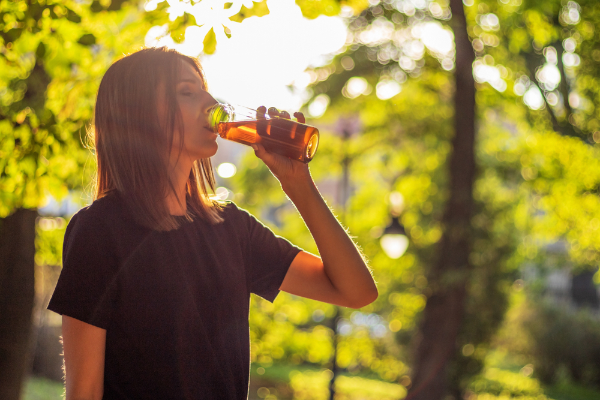
3. Endurance
Endurance is fundamental to athletes but also often the goal of us more casual gym exercisers.
It refers to the mental alertness and physical capabilities in pushing the limits of performance. Can tea help with endurance?
Jury’s still out. When it comes to endurance, the evidence for tea’s effectiveness is fragmented and many claims lack validation and replication. Here’s few data points:
A review of 24 published reports on strength and conditioning cautiously concludes that moderate caffeine intake is “pretty effective” in performance enhancement. An explanation is that it spares glycogen for a late-race push. Matcha was picked out as the best choice here.
Caffeine increases alertness; hence, you’re less likely to feel tired or exhausted. Caffeine also encourages the body to release more adrenaline, which stimulates the body to react quickly to certain circumstances. (3)
4. Concentration
In the arena of mental athletics, caffeine contributes in a variety of ways: alertness, memorization, concentration and problem-solving.
And, of course, caffeine keeps you awake. Ever wondered how that works?
Your brain contains adenosine receptors, which are neurons that regulate calmness and relaxation. As you’re awake throughout the day, adenosine accumulates in your brain. That’s what makes you feel tired!
When you sleep, your brain metabolizes the adenosine. That’s what makes sleep restorative.
Enter caffeine, which works at the cellular level to block adenosine by binding to the adenosine receptors. In this way, the caffeine blocks adenosine’s ability to lessen your alertness.
There’s more: caffeine also affects dopaminergic excitative neurotransmitter pathways that manage attention.
5. Recovery
Perhaps best of all, tea can help to ease aches and pains post-exercise.
A reliable study concludes that regular consumption of black tea reduces oxidative stress and delayed muscle soreness from anaerobic exercise, which in turns speeds up recovery. (5)
Wanna spice up your recovery? Many of the spices in black tea chai can actually enhance the benefit: cinnamon is a natural pain reliever and ginger is known to support your body’s anti-inflammatory response.
Another study shows that tea-drinking athletes burned up 15% more calories for a full three hours after exercise than did ones given a placebo. (4)
Final Thoughts
The wellness perspective on tea has tended to see caffeine as, if not villainous, then to be avoided or tolerated but not sought after.
The reality, however, is that caffeine offers many potential health benefits – with the caveat that it is sensible to limit consumption to under 300 milligrams a day.
That amounts to over a dozen cups of green tea and around eight black.
Please note, caffeine should typically be avoided by pregnant women and those with special medical concerns.
If none of those concerns apply to you, maybe you’ll be inspired to take some tea along to your next workout and see how you feel!
